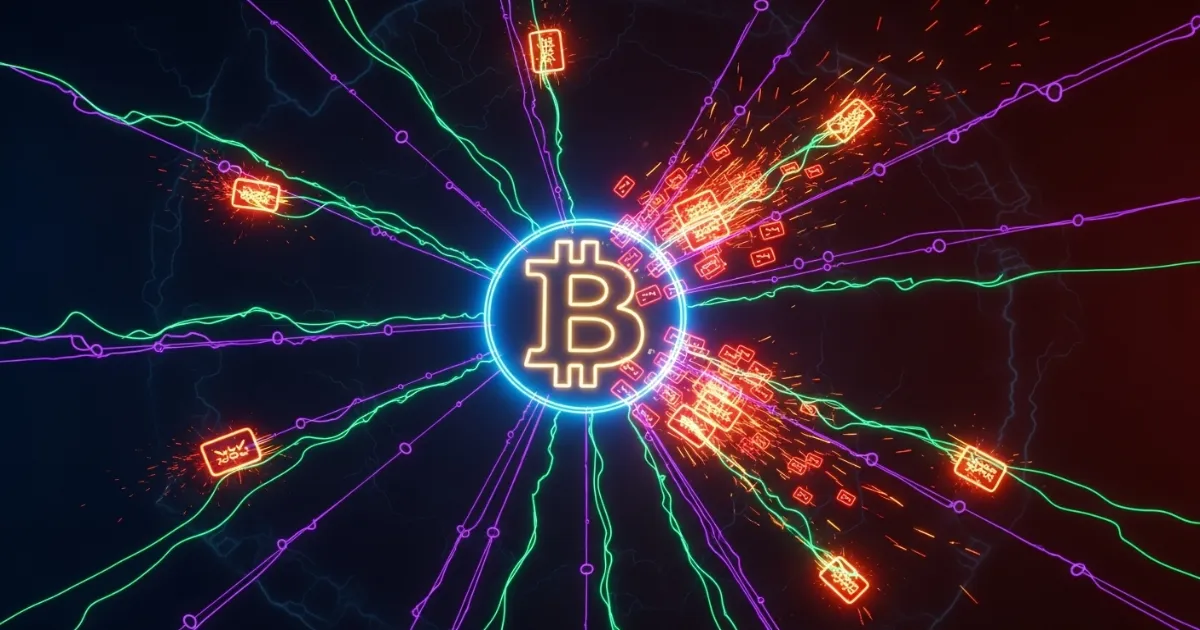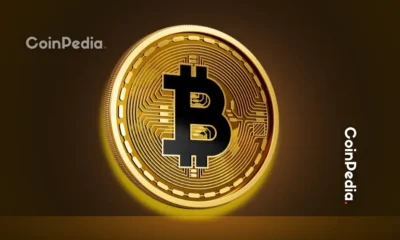Bitcoin
Bitcoin Knots Has Been Nothing More Than A Denial-of-Service Attack On Bitcoin

Credit : bitcoinmagazine.com
When utilizing a pc, a denial-of-service assault (DoS assault; UK: /dɒs/ dos US: /dɑːs/ horsefly[1]) is a cyber-attack during which the perpetrator makes an attempt to make a machine or community useful resource unavailable to focused customers by quickly or indefinitely disrupting the companies of a number related to a community. -The Wikipedia definition of denial-of-service assault.
It is a very fundamental idea. Somebody makes use of his personal sources to disrupt the operation of different machines on a community.
DoS assaults have been an issue for so long as the Web has existed. One of many usually cited “first Distributed Denial-of-Service (DDoS) assaults” was in opposition to the Web Service Supplier (ISP) Panix within the mid-Nineties. There have been in fact many technical examples of older Web companies, however this was one in every of, if not the primary, main instance of such an assault on the trendy World Huge Net.
This assault induced quite a few computer systems to provoke a Transmission Management Protocol (TCP) connection to the ISP’s servers, however by no means accomplished the handshake protocol that accomplished the connection. This consumes the server’s sources for managing community connections and prevents sincere customers from accessing the Web by the ISP’s servers.
Since this ‘first’ DDoS assault, they’ve grow to be as widespread on the web as storms in nature, a daily prevalence that huge swaths of web infrastructure have been constructed to defend in opposition to.
The Blockchain
The blockchain is without doubt one of the core elements of Bitcoin and a required dependency for Bitcoin’s performance as a distributed ledger. I am positive many individuals on this house would name so-called ‘spam’ transactions a DoS assault on the Bitcoin blockchain. To name it that, you would need to outline the “service” that the blockchain offers as a system, and clarify how spam transactions deny that service to others in a approach that isn’t supposed by the design of the system.
I guess most individuals who consider spam is a DoS assault would say one thing like “the service the blockchain offers processes monetary transactions, and spam takes house away from individuals who strive to do this.” The issue is that this isn’t particularly the service that the blockchain offers.
The service it really offers is the affirmation of every consensus legitimate transaction through a real-time public sale that settles periodically when a miner finds a block. In case your transaction is consensus legitimate and you’ve got provided a charge excessive sufficient for a miner to incorporate your transaction in a block, then you’re utilizing the service the blockchain offers precisely as designed.
This was a acutely aware design resolution remodeled years through the ‘Block Measurement Wars’ and culminated within the activation of Segregated Witness and the rejection of the Segwit2x block measurement improve through a tough fork pushed by main corporations on the time. The blockchain would operate by prioritizing transactions with the best bidding charges, and customers could be free to take part in that public sale. That is how blockspace could be allotted, with a world constraint to guard verifiability and a free market pricing mechanism.
Nothing a few transaction that some arbitrarily outline as ‘spam’, profitable on this open public sale is a DoS of the blockchain. It’s a person who makes use of that useful resource the best way it must be used, and participates within the public sale together with everybody else.
The relay community
Many, if not most, Bitcoin nodes provide transaction relaying as a service to the remainder of the community. In case you broadcast your transactions to your colleagues on the community, they may ahead them to their colleagues, and so forth. As a result of the peering logic that decides which nodes to collaborate with maintains broad connectivity, this service permits transactions to unfold in a short time throughout the community, and particularly to unfold to all mining nodes.
One other service is block relay, which passes alongside legitimate blocks when they’re present in the identical approach. This has been extremely optimized through the years, to the purpose the place normally a complete block isn’t really handed, only a quick “sketch” of the block header and the transactions contained inside it so you possibly can reconstruct them from your individual mempool. In different phrases, optimizations in block relay depend on a transaction relay functioning accurately and passing all legitimate and sure mined transactions.
When nodes don’t have any transactions in a block already of their mempool, they have to request it from neighboring nodes, which takes extra time to validate the block. Additionally they explicitly ahead these transactions together with the block sketch to different friends in case they miss them, losing bandwidth. The extra nodes filter transactions they classify as spam, the longer it takes for blocks, together with these filtered transactions, to propagate throughout the community.
Transaction filtering actively makes an attempt to disrupt each companies, within the case the place transaction relays fail miserably to stop them from spreading to miners, and within the case the place block propagation has a marginal however noticeable efficiency penalty, as extra nodes on the community filter transactions.
This node coverage has the express function of degrading the community service of passing transactions to miners and the remainder of the community, and views the deterioration of block propagation as a punishment for miners who select to incorporate legitimate transactions that they filter. They try to create the degradation of the service as a objective, and examine the degradation of one other service on account of that try as optimistic.
That is primarily a DoS assault, in that it really degrades a community service, opposite to the design of the system.
The place from?
The entire story of Knotz versus Core, or ‘Spammers’ versus ‘Filterers’, is nothing greater than a woefully ineffective and failed DoS assault on the Bitcoin community. Filters do completely nothing to stop filtered transactions from being included in blocks. The objective of disrupting the propagation of transactions to miners has not met with any success, and the degradation of block relay has been marginal sufficient to not discourage miners.
I see this as an enormous demonstration of Bitcoin’s robustness and resilience in opposition to makes an attempt at censorship and disruption on the stage of the Bitcoin community itself.
So what now?
A BIP put ahead by an nameless writer to introduce a short lived delicate fork that might expire after a few 12 months, making quite a few methods to incorporate ‘spam’ in Bitcoin transactions invalid throughout that interval. After realizing that the DoS assault on the peer-to-peer community was a complete failure, filter proponents have turned to consensus modifications, which a lot of them have been instructed could be needed over two years in the past.
Will this really resolve the issue? No, that will not occur. It would merely pressure individuals who wish to submit “spam” on this forked community, if they really undergo with its implementation, to make use of faux ScriptPubKeys to encode their information into unusable output that can bloat the UTXO set.
So even when this fork have been met with robust help, have been efficiently activated and didn’t lead to a sequence fork, it will nonetheless not obtain its said objective and go away “spammers” with no selection however to “spam” to the community in probably the most malicious approach potential.
-

 Meme Coin8 months ago
Meme Coin8 months agoDOGE Sees Massive User Growth: Active Addresses Up 400%
-

 Blockchain1 year ago
Blockchain1 year agoOrbler Partners with Meta Lion to Accelerate Web3 Growth
-

 Videos1 year ago
Videos1 year agoShocking Truth About TRON! TRX Crypto Review & Price Predictions!
-

 NFT10 months ago
NFT10 months agoSEND Arcade launches NFT entry pass for Squad Game Season 2, inspired by Squid Game
-

 Meme Coin1 year ago
Meme Coin1 year agoCrypto Whale Buys the Dip: Accumulates PEPE and ETH
-

 Solana5 months ago
Solana5 months agoSolana Price to Target $200 Amid Bullish Momentum and Staking ETF News?
-

 Ethereum1 year ago
Ethereum1 year ago5 signs that the crypto bull run is coming this September
-

 Gaming1 year ago
Gaming1 year agoGameFi Trends in 2024
































